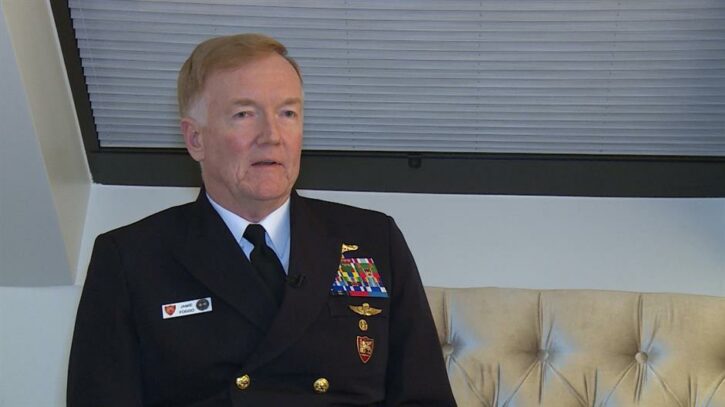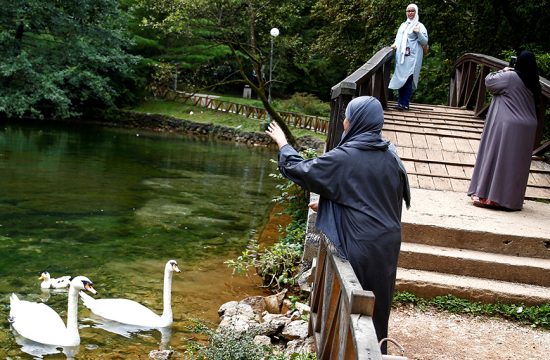
Bosnia has made significant progress in its relationship with NATO by deciding to send a ‘Reform Programme’ to the alliance, and this is most likely because leadership in the Bosnian Serb-majority part of the country, Republika Srpska (RS), realised that holding off on it would damage the RS as well as the entire state, Admiral James Foggo, commander of Allied Joint Force Command in Naples, told European Western Balkans in an interview published on Monday.
After more than a year of bickering between political leaders in the country, Bosnia has recently finally formed a government according to the October 2018 election results and has decided to send a ‘Reform Programme’ to NATO instead of the Annual National Programme – which would be the next step toward membership in the alliance.
The document Bosnia is sending to Brussels is seen as a compromise solution, as Bosnian Serb leadership, most of all Serb member of the tripartite Presidency, Milorad Dodik, were vehemently opposed to the country making any further steps toward NATO membership.
Foggo said he expressed disappointment in the “slowness of the process to get an Annual National Plan submitted” in Bosnia during a visit to the country a few months ago, but that he has seen “progress” on the issue since then.
“Presidency member Dodik has been vocal about the fact that he didn’t want to go forward with that plan, although recently there has been a slight change in his position, and a movement forward on ‘the Reform Program’,” he said.
“I think that’s coming off of where we were, which was Republika Srpska and President Dodik not interested in having any discussion about anything even closely or remotely related to an Annual National Plan, to now where we are with this reform plan. It is progress and you have to savour the small victories,” he said.
Foggo explained that “the longer you hold off on something as simple as the Annual National Plan submission, there is a reluctance for other institutions in the Euro-Atlantic system to get involved and to assist” and that such a situation produces economic consequences for the country.
“I think that Republika Srpska has looked into this and said that this is not only bad for the other the entities within Bosnia and Herzegovina, but it is also bad for us, so we have to move forward,” he said.
The “security and stability” NATO affiliation brings with it is “confidence of outside investors,” he explained.
“People want to come and put resources and money to invest in the future in your country,” Foggo said, adding that Bosnia needs foreign direct investments so the market economy can flourish.
“It all starts with stability and security first. You can’t have a strong economy without confidence, stability and security, and that comes from not just the military force, but a strong and capable and credible and ethical police force and Minister of Interior who can keep borders safe from smugglers, traffickers and violent extremist organizations,” he stressed.





